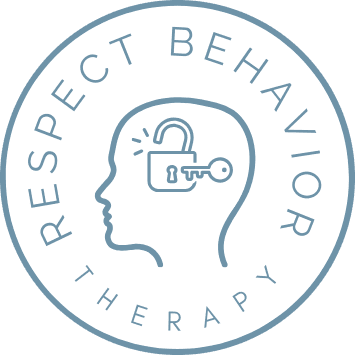Autism Re-evaluations: Why Are They Important?

Posted on April 26th, 2024.
In the realm of autism spectrum disorder (ASD), ongoing evaluation is key to understanding and supporting individuals effectively.
Autism re-evaluations play a crucial role in this process, offering insights that can inform personalized interventions and enhance overall well-being.
Understanding Autism Spectrum Disorder
Before delving into the significance of re-evaluations, let's briefly explore what autism spectrum disorder entails. ASD is a complex neurodevelopmental condition characterized by challenges in social interaction, communication, and repetitive behaviors. It manifests differently in each individual, showcasing a broad spectrum of abilities and needs.
The Importance of Early Diagnosis
Early diagnosis of autism is vital for initiating timely interventions that can significantly improve outcomes for individuals. Through comprehensive assessments, healthcare professionals can identify ASD in children as young as 18 months, enabling early access to therapies and support services.
The Role of Re-evaluations
While initial diagnoses provide valuable insights, the dynamic nature of autism necessitates ongoing evaluations. Autism re-evaluations involve assessing an individual's current strengths, challenges, and needs to adapt interventions and support strategies accordingly.
Tracking Developmental Progress
One of the primary reasons for re-evaluations is to monitor developmental progress over time. Children with autism may exhibit changes in behavior, communication skills, and social interaction as they grow and develop. Regular assessments allow professionals to track these changes and adjust interventions as needed.
Identifying Evolving Needs
Autism is not static; it evolves over time, presenting new challenges and opportunities for growth. Re-evaluations enable clinicians to identify emerging needs or areas of concern that may not have been apparent during previous assessments. By staying attuned to these changes, professionals can tailor interventions to address evolving challenges effectively.
Enhancing Intervention Strategies
Effective intervention is contingent upon understanding an individual's unique profile of strengths and challenges. Autism re-evaluations provide updated information that can inform the selection and adaptation of intervention strategies to better meet the individual's needs.
Personalizing Support
No two individuals with autism are exactly alike, and neither should their interventions be. Through re-evaluations, clinicians gain deeper insights into an individual's strengths, preferences, and areas requiring support. This allows for the development of personalized intervention plans that align with the individual's specific needs and goals.
Adapting to Changing Circumstances
Life circumstances can change, impacting an individual's support needs and goals. Re-evaluations offer an opportunity to reassess the effectiveness of current interventions in light of these changes. Whether it's transitioning to a new school, experiencing significant life events, or simply maturing into adulthood, re-evaluations ensure that support remains relevant and effective.
Collaborative Approach to Care
The journey of supporting individuals with autism is a collaborative endeavor that involves various stakeholders, including families, educators, therapists, and healthcare providers. Autism re-evaluations serve as a platform for collaboration, allowing for the exchange of insights, perspectives, and expertise to optimize outcomes for the individual.
Engaging Families
Families play a central role in the lives of individuals with autism, providing support, advocacy, and love. Re-evaluations offer families an opportunity to actively participate in the assessment process, sharing observations, concerns, and goals for their loved one. This collaborative approach fosters a sense of partnership and empowerment, ensuring that interventions are aligned with the family's values and priorities.
Coordinating Care
Effective support for individuals with autism often requires coordination among multiple service providers and professionals. Re-evaluations serve as a forum for coordinating care, facilitating communication and collaboration among various stakeholders involved in the individual's support network. This holistic approach ensures that interventions are cohesive, complementary, and aligned with the individual's overall well-being.
Addressing Evolving Needs
As individuals with autism transition through different stages of life, their support needs may evolve, requiring adjustments to interventions and services. Autism re-evaluations provide an opportunity to address these evolving needs proactively, ensuring that support remains responsive and relevant across the lifespan.
Transition Planning
Transitions can be challenging for individuals with autism, whether they involve moving to a new school, entering adulthood, or navigating changes in routine. Re-evaluations play a vital role in transition planning, identifying areas of support and developing strategies to facilitate successful transitions. By addressing potential challenges proactively, individuals can navigate transitions with greater confidence and resilience.
Lifespan Perspective
Autism is a lifelong condition, and support needs extend beyond childhood into adolescence and adulthood. Re-evaluations offer a lifespan perspective, recognizing that individuals with autism continue to grow, learn, and evolve throughout their lives. By embracing this perspective, professionals can provide continuous support that meets the changing needs of individuals with autism across different life stages.
Advocating for Accessibility
Ensuring accessibility and inclusivity is essential for individuals with autism to thrive in various settings, from schools to workplaces and communities. Autism re-evaluations can inform advocacy efforts aimed at promoting greater accessibility and accommodations for individuals with autism, advocating for policies and practices that foster inclusion and acceptance.
Promoting Inclusive Environments
Inclusive environments recognize and celebrate the unique strengths and contributions of individuals with autism. Re-evaluations provide insights that can inform the design of inclusive spaces and programs, ensuring that individuals with autism have access to the supports and accommodations they need to participate fully and meaningfully.
Advocating for Policy Change
Advocacy plays a crucial role in shaping policies and practices that impact individuals with autism and their families. Re-evaluations offer data-driven insights that can inform advocacy efforts, highlighting areas where policy change is needed to improve access to services, supports, and opportunities for individuals with autism.
Reach out for expert guidance
In conclusion, autism re-evaluations are indispensable for understanding the dynamic nature of autism and optimizing support interventions accordingly.
By tracking developmental progress, personalizing interventions, and fostering collaboration, re-evaluations empower individuals with autism to reach their full potential across the lifespan. To learn more about our services and how we can support you, please reach out to Respect Behavior Therapy at (943) 200-0016 or [email protected].
